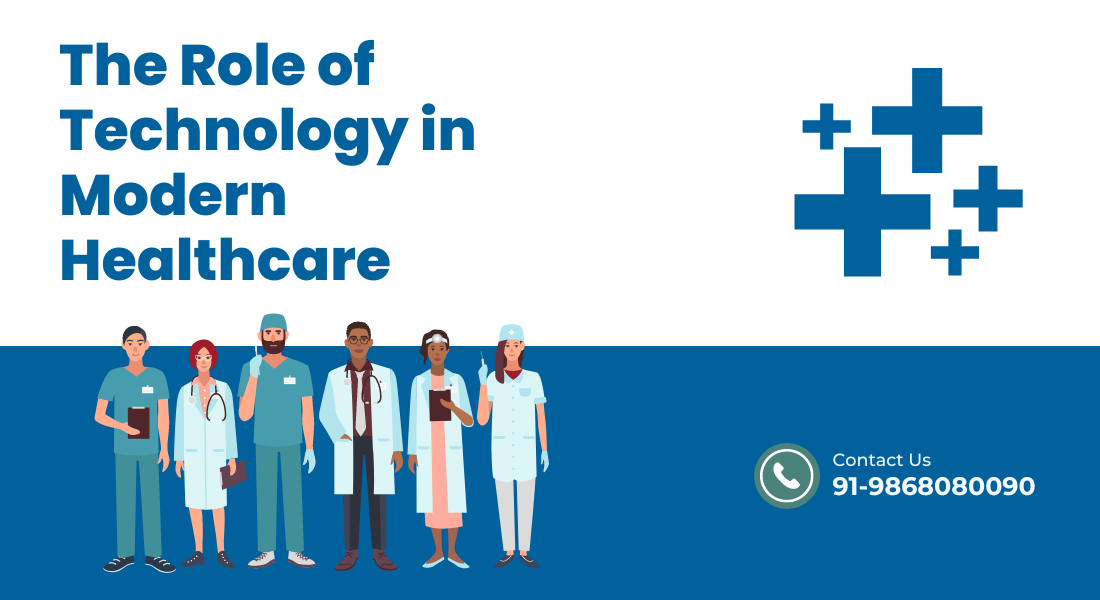The integration of technology into healthcare has transformed the way we approach patient care, diagnosis, and treatment. With rapid advancements in medical technology, healthcare providers can offer more efficient, accurate, and personalized care than ever before. This blog post explores the various roles technology plays in modern healthcare and its implications for patients and providers alike.
1. Telemedicine and Remote Care
Telemedicine has revolutionized healthcare delivery by allowing patients to consult with healthcare providers remotely. This technology has several benefits:
- Accessibility: Patients in rural or underserved areas can access healthcare services without traveling long distances.
- Convenience: Telemedicine appointments can be scheduled at convenient times, reducing the need for time off work or long waits in waiting rooms.
- Continuity of Care: Remote monitoring tools allow healthcare providers to track patients’ health conditions over time, ensuring consistent care and timely interventions.
2. Electronic Health Records (EHR)
Electronic Health Records (EHR) have replaced traditional paper records, streamlining the way patient information is stored and shared. Key advantages include:
- Improved Accuracy: EHRs reduce the risk of errors that can occur with handwritten notes, enhancing the accuracy of patient information.
- Easy Access: Healthcare providers can quickly access patient records, enabling better coordination of care among specialists.
- Data Analytics: EHRs facilitate the collection of large amounts of health data, which can be analyzed to identify trends, improve treatment protocols, and enhance public health initiatives.
3. Wearable Technology
Wearable devices, such as fitness trackers and smartwatches, have gained popularity for monitoring health metrics. These devices can:
- Track Vital Signs: Wearables can monitor heart rate, blood pressure, and sleep patterns, allowing individuals to keep tabs on their health in real-time.
- Promote Healthy Habits: Many devices encourage users to adopt healthier lifestyles by tracking physical activity, dietary habits, and sleep quality.
- Alert Healthcare Providers: Some wearables can send alerts to healthcare providers if they detect abnormal readings, enabling timely interventions.
4. Health Apps and Patient Engagement
Mobile health applications empower patients to take charge of their health. These apps can provide:
- Medication Reminders: Patients can receive reminders to take medications, improving adherence to treatment plans.
- Symptom Tracking: Users can log symptoms and health changes, which can be valuable information for healthcare providers during consultations.
- Education and Resources: Many health apps offer educational materials and resources to help patients make informed decisions about their health.
5. Artificial Intelligence (AI) and Machine Learning
AI and machine learning are becoming integral to healthcare, offering innovative solutions for various challenges:
- Diagnostics: AI algorithms can analyze medical images, lab results, and patient data to assist in diagnosing conditions more accurately and quickly.
- Predictive Analytics: AI can identify patterns in data that may predict patient outcomes, enabling proactive care and personalized treatment plans.
- Operational Efficiency: AI-powered tools can streamline administrative tasks, such as scheduling and billing, allowing healthcare providers to focus more on patient care.
6. Robotics and Automation
Robotic technology is making significant strides in surgery and patient care:
- Minimally Invasive Surgery: Robotic-assisted surgeries allow for greater precision, smaller incisions, and faster recovery times.
- Patient Care Robots: Robots can assist healthcare staff with tasks such as transporting supplies, monitoring patients, and even providing companionship to those in long-term care facilities.
7. Data Security and Privacy
With the increasing reliance on technology comes the need for robust data security measures. Healthcare providers must ensure that patient information is protected against cyber threats. Key considerations include:
- Compliance: Adhering to regulations such as HIPAA (Health Insurance Portability and Accountability Act) is essential for safeguarding patient data.
- Encryption: Utilizing encryption technologies helps protect sensitive information during transmission and storage.
- Staff Training: Ongoing training for healthcare staff on data privacy and security best practices is crucial for minimizing risks.
Conclusion
Technology has become an indispensable part of modern healthcare, enhancing patient care, improving efficiency, and fostering better communication between patients and providers. While challenges such as data security and access disparities remain, the benefits of technology in healthcare are undeniable. As we continue to innovate and integrate new technologies, the future of healthcare looks promising, with the potential for even greater advancements that prioritize patient health and well-being. Embracing these changes will not only improve individual outcomes but also contribute to a healthier society overall.
4o mini



